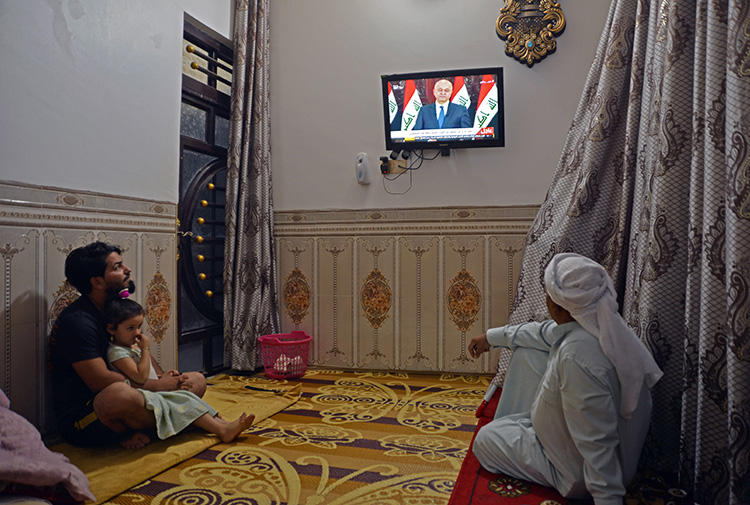Beirut, November 25, 2019 — Iraq’s media regulator should reverse its decision to order the closure of 12 broadcasters over a licensing dispute and should allow media outlets to freely cover protests in the country, the Committee to Protect Journalists said today.
On November 12, the Communications and Media Commission, Iraq’s media regulator, ordered the closure of eight television broadcasters and four radio stations for three months for allegedly violating media licensing rules, and issued a warning against five more broadcasters over their coverage of protests, according to a copy of the closure decision, which CPJ reviewed, and reports by local news organizations and press freedom groups.
According to the decision, the commission also renewed the closure of U.S.-funded broadcaster Al-Hurra for an additional three months. The outlet was shuttered on September 2 after it aired a report on alleged state corruption, as CPJ reported at the time.
The decision includes a recommendation to the prime minister’s office to send security forces to the outlets to force them to close. According to CPJ’s review of the outlets’ broadcasts, and an official with the media regulator who spoke to news website Arab News, none of the outlets have been closed as of November 25.
The outlets have critically covered the protests that have taken place throughout Iraq since October over a lack of basic services, unemployment, and government corruption, according to CPJ’s review of their broadcasts.
“Iraqi authorities are using all the means at their disposal, legal and otherwise, to intimidate outlets in an effort to prevent them from covering the ongoing protests in the country,” said CPJ Middle East and North Africa Representative Ignacio Miguel Delgado. “We call on the Iraqi Communications and Media Commission to reverse this order and to allow TV broadcasters, radio stations, and journalists to do their jobs.”
The outlets listed in the decision are the Amman-based Dijlah TV and Anb TV, the Dubai-based Al-Sharqiya TV, the Saudi-funded Al-Arabiya Al-Hadath, the U.S.-funded Radio Sawa, the Sulaymaniyah-based NRT News and Radio Nawa, and the Baghdad-based Al-Rasheed TV, Al-Fallujah, Hona Baghdad, Radio Al-Nas, and Radio Al-Youm.
The decision also issued a warning to five outlets to “adapt their discourse to the media broadcasting rules” or else face possible suspension: the Abu Dhabi-based Sky News Arabia, the Beirut-based Al-Sumaria, the Erbil-based Rudaw, and the Baghdad-based Asia TV and Ur TV.
The document recommends that the prime minister’s office approach representatives from the home countries of the foreign outlets listed in the decision, as well as the management of Egyptian satellite provider NileSat, to address the alleged violations.
Iraq’s Communications and Media Commission did not immediately reply to CPJ’s emailed request for comment.
Amid the protests, unidentified gunmen raided the Baghdad offices of four broadcasters, and the Communications and Media Commission ordered Al-Dijlah TV’s transmissions into Iraq to be blocked and its offices shut down for allegedly failing to abide by professional standards, according to CPJ reporting.
